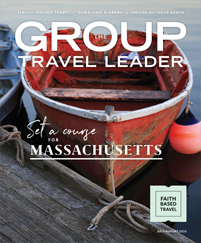Tennessee has Nashville and Louisiana has New Orleans, but Georgia’s musical heritage is so woven into the fabric of the state and its history that it can be hard to separate one from the other.
Georgia’s music history reaches back before the Civil War, when the churches of Savannah rang out with music from slaves appreciating the one moment in their week they were free to come together. At the start of the 20th century in Columbus, former church singer Ma Rainey added a new style — blues — to her act and went on to bring the new style to listeners around the country through her albums.
James Brown picked up the torch in Augusta and became the father of funk as Georgia hit its groove as a music destination. Macon become the center of soul and R&B in the 1960s and 1970s, before the torch was passed to Athens, for decades the home to ground-breaking alternative rock groups.
Athens
Depending on the age of your group, Athens may be most associated with R.E.M., the B-52s or Widespread Panic, but one of the biggest draws of Athens’ rock music heritage is how alive it is throughout the fabric of the city today.
“I’m so used to talking about R.E.M., but you won’t believe the number of musicians that live in town,” said Rachel Watkins, public relations information coordinator for the Athens Convention and Visitors Bureau. “There are a lot of talented people who have chosen to live here because we have a thriving culture and a low cost of living.”
Groups can get a crash course in the city’s music history with a step-on guide from Classic City Tours taking in the city’s most storied sites, such as St. Mary’s Episcopal Church, where R.E.M. played its first concert; past locations of the iconic 40 Watt Club; and the recently restored, 125-year-old Georgia Theater, which has housed everything from concerts by The Police and R.E.M. to a YMCA and a Masonic temple over the years.
“The beauty of Athens is that you can hear live music any day of the week,” said Watkins. Though it has changed locations over the years, the 40 Watt Club still rocks just as hard as when alternative rock pioneers Pylon played there, and the Caledonia Lounge is still famous as the place to see future famous acts before they make it big.
Augusta
The recent film “Get On Up” may have introduced James Brown to a whole new generation, but for many, Brown has never faded away. Nowhere is that more the case than in Augusta, where he grew up.
Groups should plan to devote an hour and a half to two hours to the Augusta Museum of History because, as executive director Nancy J. Glaser explained, “[Brown] kept everything. He’s a museum’s dream. He kept all of his costumes, and we rotate them every other year. We’ll be changing them this summer.”
The museum’s exhibits also include items on loan from bandmates and family members that bring visitors into Brown’s life, from tour posters in German and Japanese to several of Brown’s Grammys and a section on his philanthropic work that his children now continue.
“A portion of the museum also focuses on Augusta’s music legacy,” Glaser said. “Two of the boys from Lady Antebellum grew up in Columbia County, jazz musician Wycliffe Gordon [is] from this area, Amy Grant — the list goes on. It’s a very rich area.”











